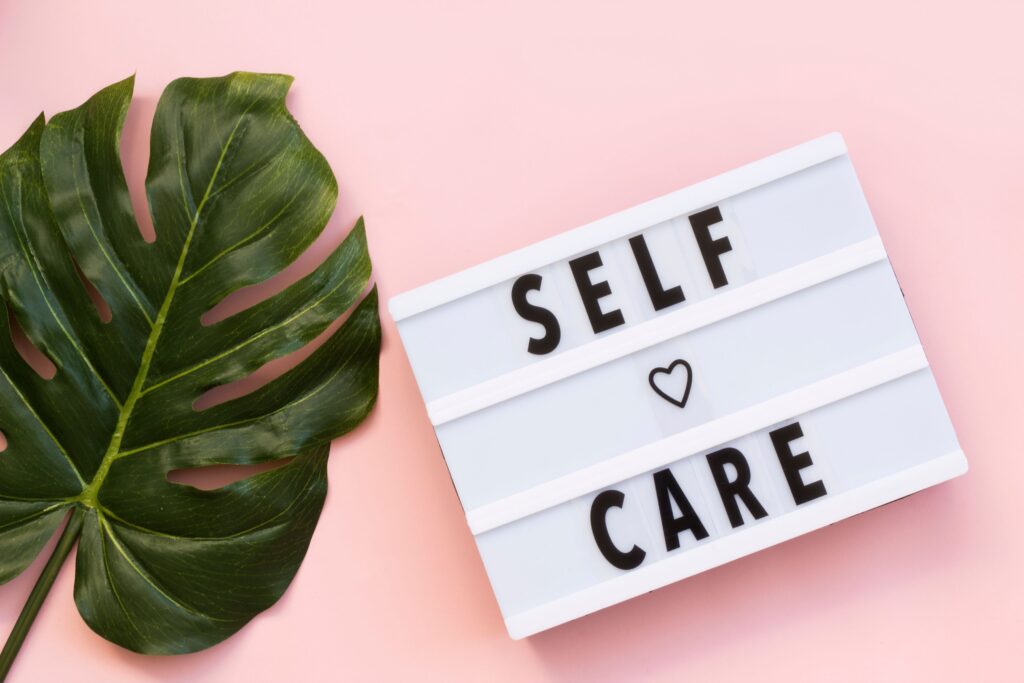According to the National Institute of Mental Health, mental health affects how we as humans think, feel, act, make choices, and relate to others. It includes our emotional, psychological, and social well-being. It encompasses our overall health and quality of life. Educators often take on more responsibilities than they have time for, experience more stress than they can handle, and put in more hours in their day than a healthy balance calls for. How can teachers use self-care to help get back all that they give? Why is it so important for educators to schedule in regular self-care, and how can they possibly fit this in amongst their already busy schedules?
Why Teachers Need Regular Self-Care
Educator stress levels have skyrocketed since the start of the pandemic and have not yet made a recovery. That is why it is critical for teachers to find a way to incorporate regular self-care (I know, it seems like just another thing to put on your plate). But without this designated time in a teacher’s schedule to destress, ground themselves, and do things they love to do, teacher burnout is only going to continue.
If you are an educator, think about how good it feels when you are on a holiday or summer break. What if you could take some of those moments and feelings you experience during your time off and sprinkle them throughout your regular schedule? How might that change your work/life happiness? Below we will discuss some self-care ideas that may help you get started on giving yourself back the time you need to be the best educator (and maybe even person) you can be.
Teacher Self-Care Ideas
The school year for teachers is full of demands, due dates, and expectations. Teachers feel controlled by alarm clocks, and their personal goals and love for hobbies may need to be set aside during the school year. Teachers must avoid this thought, invest in self-care and wellness as soon as the first day of school, and create a sustainable habit that can be carried through the entire school year.
Self-care and wellness practices can include healthy eating, exercise, meditation or positive self-talk, and much-needed sleep. Each of these factors needs time and self-discipline. Practicing and prioritizing these habits before returning to the classroom for a new school year is important. If a teacher prioritizes their own wellness, it will be easier to carve out before the school day begins or after the school day ends. Once these habits have become second nature, the teacher will easily make the necessary time to continue to feel good. Healthy self-care brings peace and positivity to a teacher’s emotions, allowing the teacher to feel good with planning, teaching, and inspiring students in the classroom.
Many teachers have grade-level partners to plan with, discuss students’ concerns, share teaching ideas, and support one another each day. A teacher’s teammates can also encourage one another to maintain personal goals or join one other in various self-care activities, developing accountability for necessary self-care.
Set and Maintain Boundaries
This first idea may not be what you were originally thinking of “self-care.” It is an important one to start with. One exercise that you might find valuable is using when-then sentences. This can help you set and maintain boundaries. “When I finish calling William’s mom and grading the math tests, then I will leave for home,” or “When I enter the classes most recent spelling grades, then I will take a quick stretch break and say hi to my coworker.” Visual reminders of your when-then sentences can help you remember what your boundaries are, and help you not try to “push through” the endless piles of work that seem to hit teachers’ desks far too often.
Move your Body
Many of us have heard that moving helps release good endorphins that improve one’s mood. Oftentimes we think of this when it comes to going to the gym or heading out for a run. But did you know that even the littlest movement breaks can have so many positive benefits for your body? According to Daniel Lieberman, a professor in the department of human evolutionary biology at Harvard, “The more we study physical activity, the more we realize that it doesn’t really matter what you do,” Lieberman says. “You don’t have to do incredible strength training to get some benefits of physical activity.”
Have five minutes? Walk up and down that flight of stairs five times. Have 10 minutes? Walk around the block while listening to your favorite soundtrack or podcast. Feeling way too overwhelmed with the amount of student work left to be graded? What about reading through your students’ essays while pacing the classroom or commenting on their seesaws while walking around your neighborhood? Movement is movement, no matter how small.
Connection
Is it just me or does it get harder and harder to stay in touch with people as we age? One would think that with how immediate technology has made our lives, it wouldn’t be hard to send that text or leave that voicemail, but for some reason it just is. Why not make your self-care goal one that strengthens your connections? Make a goal of connecting with one friend or family member every week. Maybe that means sending a “Hello, just saying hi,” text. Or maybe it means setting aside that 30 minutes you have scheduled for your self-care walk to double dip with calling a friend. Other, simpler ideas? Leave a sticky note on your fellow educator’s desk saying, “You are doing a great job!” Making others feel good helps us to feel good too.
Meditate
It can be very hard to quiet one’s mind after a long day at school. But sometimes this is just what one needs to leave work at work, ground themselves, and destress. Taking time to meditate can help connect yourself back to your essence, purpose, and meaning. Not sure where to start? There are hundreds of mediation apps available including Headspace, The Mindfulness App, and Calm. If meditation isn’t for you, something as simple as reading right before bed can also be another simple and extremely effective way of clearing one’s mind and getting a restful night of sleep.
After a full day of managing a classroom, teaching students, and gearing up for the next day, a teacher can benefit from a self-care activity to provide necessary fuel to do this all over again. There are many ways to put your school responsibilities aside at the end of a school day or prioritize before arriving at school.
- Brisk walk outside or on a treadmill
- Listen to instrumental music
- Sit quietly and meditate
- Play with a pet
- Participate in a yoga class
- Read
- Create: needlepoint, embroidery, paint
- Go out to dinner with friends
- Sit outside on a beautiful day
- Listen to podcasts
- Go for a run or bike ride
- Go to bed early
- Exercise
- Talk to a good friend
- Watch television
All of these self-care options can only be effective if selected by the person and completed naturally and with little effort. Self-care should not be a demand but an enjoyable activity that allows the teacher to relax.
Teaching is a challenging profession that is not the same every day. It is important for teachers to incorporate self-care every school year to maintain the demands of the enormous responsibility for teaching young minds every day. Without self-care, a teacher risks early career burnout and contemplation of a different career. Self-care routines provide an ability to build a healthy work/life balance for teachers. When teachers feel relaxed, supported, and appreciated through regular self-care choices and other school-related support, teachers become more dedicated to their teaching journey along with developing an interest in making the career lifelong.
Educators never stop learning; check out our available graduate degree programs to hone your skills and promote lifelong learning and academic excellence.




